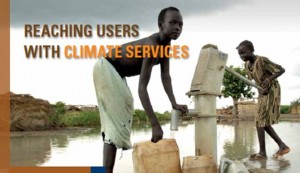María Elena Cruz Martín
y Managing Director de Girls in Tech España.
We may think that there is a lack of information on weather or climate conditions data. But the fact is that this is not true. There is lots of primary environmental and climate information dispersed in the “World Wide Web” and in different information repositories that can be used. The problem is that there is a lack of means to take this information to the final user like you and me.
I will write today about the importance to have available climate information for better decision making. It can be used for early warning systems, disaster response planning or for simple citizen’s knowledge.
One of the most important environmental set of data worldwide is the one coming from global meteorological monitoring systems. At present the major repository of these numbers is the World Weather Information Service. All the information is available only in the web and used mainly by governments instead of the normal people or local cities authorities. By July 1st, the system received weather forecasts for around 3,000 cities worldwide. All this information is in their webpage: http://worldweather.wmo.int/ . But are we able to read and interpret it?
The World Meteorological Organization (WMO) in their latest Bulletin No. 60-1 stated that more historical weather data and climate change predictions and models are needed. Andrew C. Revkin from the NY Times published an article with the WMO called “The new communications climate” where they state that an enormous gap persists between what is possible to communicate on climate and what is happening.
According to the WMO there is a need of a group climate services such as historical data sets for particular places; statistical summaries of temperature patterns, long-term averages or maps, or risk analysis of extreme conditions. They mention that there are 13 sectors of the economy that need more climate change information for better decision making: agriculture, power, buildings, infrastructure, renewables, oil & gas, utilities, mining, tourism, automobile, chemicals, financial and health care. The information is there but it is not reaching final users.
Cities and areas vulnerable to climate change are growing faster and national and local authorities need to manage the environmental and climate change risks. They require information in real time to do better decision making. In addition, users need to get this information easily to decide or plan what to do if there is heavy rain, or sun o a tornado comming.
I have seen a great example of a US company called “Weather Decision Technologies” that has several ideas on sharing information in real time,. One of their service is called Imap weather radio and it gives you weather information of your location in on your iphone. An intensive use of applications for mobiles or computers easy to be managed could be an alternative too. Maybe, common social networks such as facebook or twitter could be great allies. So let’s tweet this…
